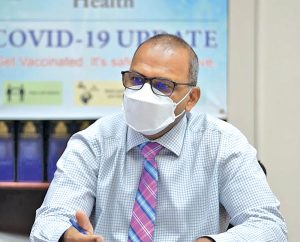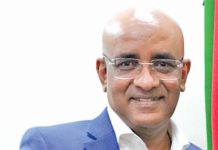The evident issue of inequality in COVID vaccine access is one of the main challenges that should be bridged in order for countries to protect their population from the current pandemic, which has stretched on for two years.
Health Minister Dr Frank Anthony shared this position on Friday as he highlighted the pressing need to curb this setback.
In the COVID update, the Health Minister pointed out that a lot of inequality exists in vaccine accessibility, and, moreover, countries are facing internal challenges ranging from logistical issues to the development of infrastructure to sustain a vaccination programme.
“There still exists a lot of inequality, because the population of different countries vary. Some of them have millions of people in their country and they have not been able to receive enough vaccines for the entire population. So that has been a challenge, and the logistics from moving the vaccines from where it’s manufactured to these countries. Then, within the countries, having the infrastructure to distribute the vaccines. So, they’re varying challenges, and that is why some countries have this lower-than-80 per cent coverage,” he informed.
He added that misinformation and vaccine hesitancy are some other factors which countries continue to face. In Guyana, this has been the case in some regions and communities. Due to hesitancy, Region 10 currently has the lowest vaccination uptake since the jabs were made available here.

Dr Frank Anthony











